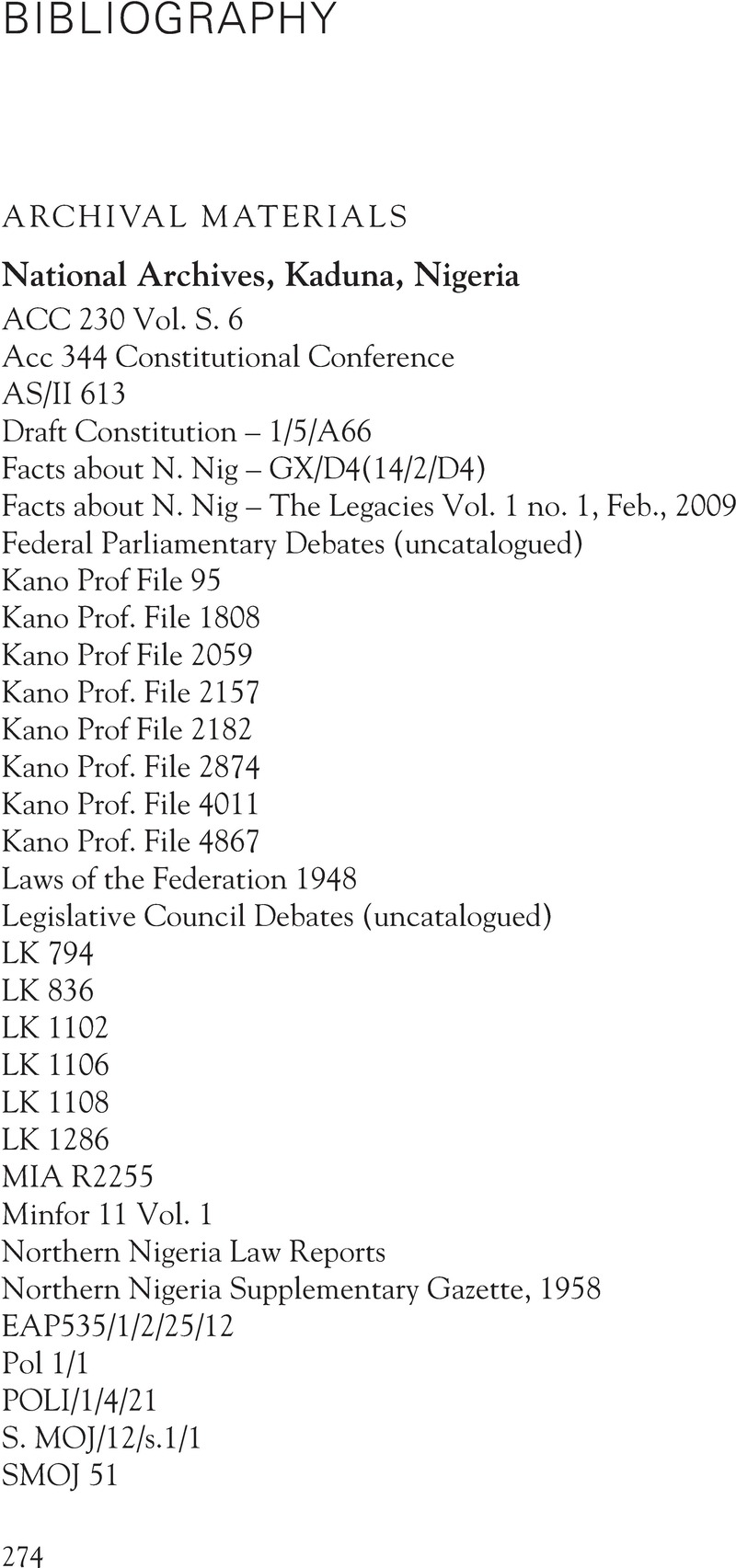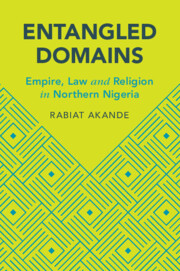Book contents
Bibliography
Published online by Cambridge University Press: 18 May 2023
Summary

- Type
- Chapter
- Information
- Entangled DomainsEmpire, Law and Religion in Northern Nigeria, pp. 274 - 300Publisher: Cambridge University PressPrint publication year: 2023

